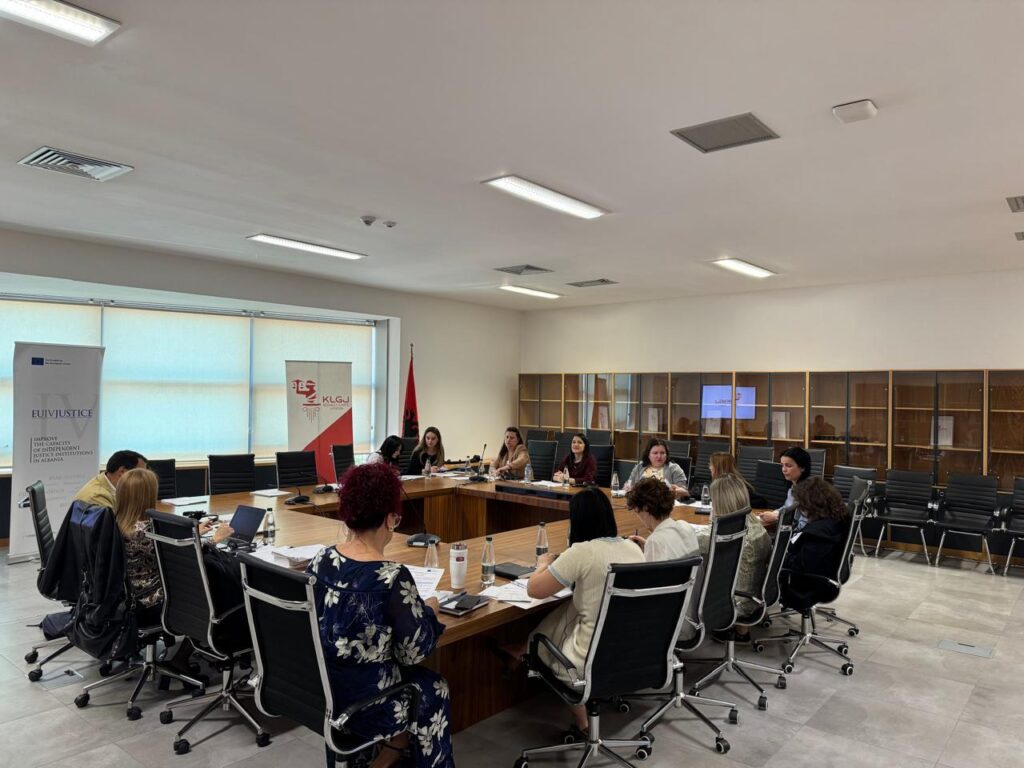- “Abdi Toptani” Street, Torre Drin Building, 10th floor, Tirana, Albania
- info@eu4justice.al
- Call Us : +355 (0) 4 562 0550

On 13–14 May 2025, the EU4Justice project organised a two-day technical workshop under Sub-activity 1.3.1.9, focusing on judicial evaluation and career development procedures. The objective was to review current practices and support the standardisation of evaluation methodologies and reporting frameworks in line with European standards.
The workshop was attended by 14 participants, including an HJC member, Chair of the Ethical and Professional Evaluation Committee, magistrate-legal advisors from the Ethical and Professional Evaluation Unit, and legal advisors from the HJC Legal Support Unit. It was delivered by an Italian magistrate mobilised and deployed as a short-term expert (STE) by the Project.
The sessions addressed key legal, procedural, and institutional challenges affecting the current evaluation process. Participants examined applicable legal and procedural frameworks, timelines, reporting structures and practices. They identified key persistent challenges such as delays in statistical data collection due to manual processes, lack of automated case management outputs, absence of automated reporting tools, and insufficient specialised staff, particularly in statistical analysis and expertise. While the current methodology and evaluation forms were considered sound and appropriate, systemic inefficiencies, limited resources and capacity constraints identified were acknowledged as the main obstacles to timely and consistent evaluations.
EU4Justice Experts presented comparative European practices, with particular reference to the Italian model, where evaluation reports focus on anomalies and follow standardised templates. Drawing on European good practices—particularly Italy’s anomaly-based evaluation model—the workshop explored the use of standardised templates and tabular formats to enhance the clarity, structure, and consistency of reports. Discussions focused on the feasibility of adopting similar approaches in Albania, including clearer, more concise, and tabular report structures and formats to improve clarity and consistency. Participants explored the possibility of adapting these elements to the Albanian context without altering the core methodology.
Key recommendations included enhancing inter-institutional coordination with relevant institutions, introducing peer-review mechanisms, and strengthening staff capacities through specialist recruitment (statisticians) and targeted training. The workshop concluded with consensus on the need for practical measures to support a transparent, objective, accountable and standardised evaluation process aligned with European standards.
EU4JUSTICE is an EU Contribution Agreement Project implemented by AICS, Expertise France, and FIIAPP. The project’s overall objective is the improvement of the capacity of the independent justice institutions in Albania.




